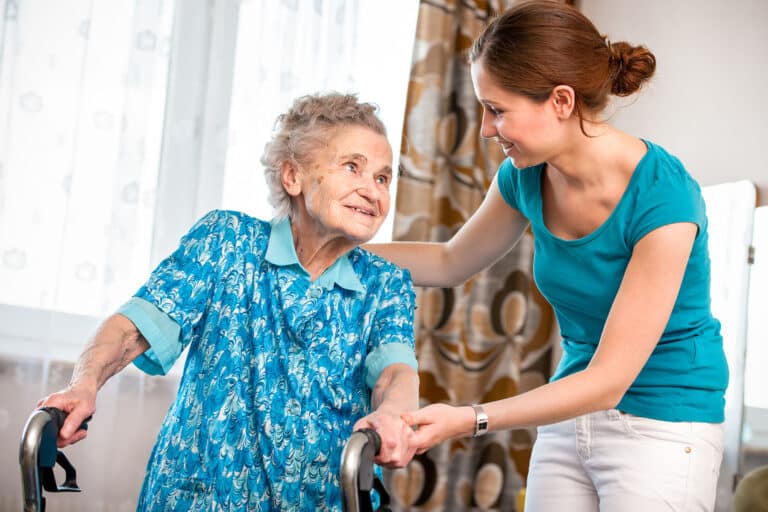Recovering from a stroke is a difficult process, especially for seniors who may also have other health and mobility concerns. Stroke survivors may require significant care to restore independence and improve their quality of life. Understanding the types of assistance seniors may require, such as home care, ensures a successful recovery.
Medical Support
The first step in post-stroke care is to address medical issues. Seniors usually need follow-up sessions with neurologists and primary care physicians to monitor their recovery. Anticoagulants or blood pressure medications may be used to help avoid future strokes.
For the medication piece of the puzzle, skilled nursing can be brought into the home, while home care providers can ensure seniors are safely transported to their appointments or have the technical support to get online for telehealth visits.
Rehabilitation Services
Rehabilitation is a crucial component of stroke rehabilitation. Seniors may require individualized therapy programs to address physical, cognitive, and emotional issues. Typical rehabilitative services include:
- Physical Therapy: The goal of physical therapy is to help seniors rebuild strength, increase mobility, and lower the risk of falling.
- Occupational Therapy: Occupational therapy helps seniors relearn daily functions, including dressing, cooking, using utensils, and more.
- Speech Therapy: Speech therapists assist seniors who have difficulty communicating by teaching them exercises that are meant to help restore their speaking and swallowing abilities.
Home care providers, family members, and the medical team will all need to work together to ensure there is collaboration and that seniors have everything they need.
Emotional and Psychological Support
Strokes can have a significant emotional impact, causing emotions of frustration, worry, and depression. Seniors may struggle with changes in independence or worry about having another stroke. Professional counseling or support groups can be effective emotional outlets.
Family members and home care professionals should also create a positive environment by celebrating each achievement and encouraging open conversation about feelings and concerns.
Assistance With Daily Activities
Depending on the severity of the stroke, seniors may require assistance with daily living activities (ADLs) like washing, dressing, and eating. Home care providers can assist with this, as well as review modifications with family members that will make the house safer and more accessible for seniors, such as installing grab bars, adding a shower chair, and installing motion lighting.
It’s important to note that modifications may be needed in other parts of the house as well, not just the bathroom. For instance, a ramp may need to be constructed if seniors are in a wheelchair or struggle with steps. Also, furniture may need to be moved around to create wider pathways.
Nutritional Guidance
A healthy diet is a priority for seniors recovering from a stroke. Seniors should focus on heart-healthy foods like fruits, vegetables, lean meats, and whole grains. Reducing sodium, sugar, and saturated fats is also a good idea.
A nutritionist can assist in developing meal plans tailored to specific health concerns, such as diabetes or high blood pressure, while family members and home care can encourage seniors to adhere to their nutritional goals.
Social Engagement
Isolation can slow rehabilitation and increase feelings of loneliness. With this in mind, it’s important to encourage seniors to stay connected, whether through visits with family, community programs, or virtual gatherings. In addition, stroke support groups, whether in-person or online, give seniors a chance to interact with others who have had similar experiences.
Helping seniors recover from a stroke takes patience, compassion, and strategic preparation. However, with the support of home care services and loved ones by their side, seniors can look forward to a successful recovery.
If you or an aging loved one needs Home Care in Lincoln, CA, contact A Better Living Home Care today (916) 514-7006
Sources:
- https://www.lifeline.com/blog/supporting-seniors-after-a-stroke/#:~:text=Rehabilitation%20plays%20a%20crucial%20role,sense%20of%20achievement%20and%20motivation.
- https://www.cdc.gov/stroke/treatment/index.html#:~:text=What%20is%20stroke%20rehabilitation%3F,lost%20because%20of%20the%20stroke.
- https://www.stroke.org/en/help-and-support/for-family-caregivers/15-things-caregivers-should-know-after-a-loved-one-has-had-a-stroke
- Helping Seniors Reduce Health Anxiety - April 18, 2025
- Why Should Seniors Consider Adding Soy to Their Diets? - April 7, 2025
- Four Ways to Celebrate Spring With Your Homebound Elderly Loved One - April 2, 2025


